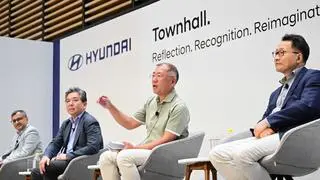The virtual office is here to stay. But can you imagine a digital workspace where you have moved beyond voice and video and are able to remotely get a whiff of the cologne or perfume of your colleagues or customers, sense their mood and feel the texture of the product they are showing in a presentation?
The scenarios
Everyone is busy re-imagining the future of work post Covid-19. From Microsoft to Adobe to Deloitte to Accenture, companies have projected different scenarios. But Ericsson Consumer & Industry Labs’ report, The Dematerialized Office, released on Wednesday, really pushes tech frontiers in its vision of the virtual workplace of 2030.
A decade from now, we could see the internet of senses brought into the virtual office, thanks to advances in augmented reality, virtual reality, AI, brainwave mapping and facial recognition, it says . “From mere screen-based connectivity, we could see the virtual office become a fully immersive experience with all the senses involved,” says Michael Bjorn, Head of Research Agenda, Ericsson Consumer & Industry Lab.
Significantly the report results from a survey of 8,400 white collar workers who are early adopters of AR, VR or virtual assistants from 16 countries, representing around 133 million people, about their expectations of the future workspace. Fifty-eight per cent of the respondents were keen on a full-sense digital office. According to Bjorn, Indian respondents showed the most interest.
“The pandemic has become a digital tipping point, “ says Bjorn, describing how, compared to last year when Ericsson Labs did a report on the internet of senses, this year there is 25 per cent more interest in these kinds of services. This is because while work may be going on virtually, people miss interacting with others with all their senses, he says.
According to Bjorn, the accelerated virtualisation of the office will drive advances in future technologies at a faster pace than imaginable and, thus, we could soon see the appearance of digital smell tech, taste tech and touch tech. Indeed, we have seen some innovative tech creep into the digital office already such as the virtual commute that Microsoft added to the online work experience.
However, while both technology and the mindset to accept this may be there, the barriers to adoption of the internet of senses could come from security and privacy concerns, notes the report.
Hybrid model
Significantly, while tech companies are painting a virtual vision of the workspace, co-working companies, architectural and consulting firms are balancing it out with a more hybrid model.
Finally, as Sanjay Sarma, founder of SSarma Consults, says, “physical or virtual will not matter as much as a workplace’s ability to inspire”.








Comments
Comments have to be in English, and in full sentences. They cannot be abusive or personal. Please abide by our community guidelines for posting your comments.
We have migrated to a new commenting platform. If you are already a registered user of TheHindu Businessline and logged in, you may continue to engage with our articles. If you do not have an account please register and login to post comments. Users can access their older comments by logging into their accounts on Vuukle.